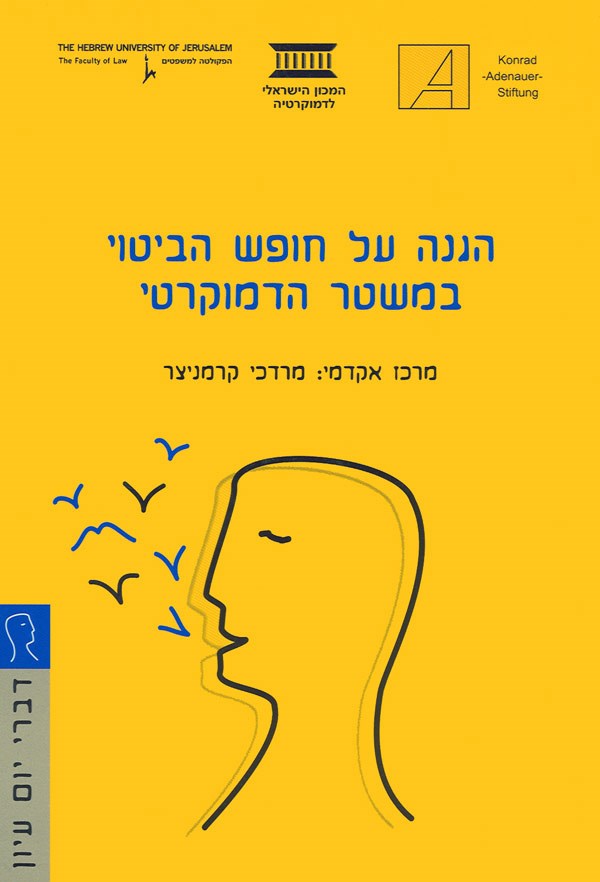Defending Freedom of Speech in a Democracy
Conference Proceedings, April 2002
- Written By: Prof. Mordechai Kremnitzer, Dr. Amir Fuchs
- Publication Date:
- Cover Type: Softcover | Hebrew
- Number Of Pages: 301 Pages
- Price: 75 NIS
Freedom of speech is one of the cornerstones of any democracy. This volume presents the proceedings of an IDI seminar on restrictions on free speech under Israeli law.
Freedom of expression is one of the most important values in a democracy. It contributes to individual development and fulfillment and is therefore considered to be the core of the principle of autonomy. Freedom of expression helps reveal the truth; the most effective way to fight falsehood is not to suppress it, but to expose the truth and create an open confrontation between it and the lie. Freedom of expression also helps solve social, political, and economic problems through peaceful means; in contrast, in the absence of free expression, there is a risk that people will resort to violence in order to express their positions.
A certain amount of free speech is a prerequisite for realizing the important concept that underlies the formal structure of democracy: control of the affairs of the state by the majority of citizens, through their informed election of representatives. The accepted link between free speech and democracy, however, goes beyond this. It may stem from irrelevant arguments. There may also be a qualitative and material tie between certain values and “democracy,” beyond the minimum necessary for the existence of a democratic regime in the formal sense.
This volume presents the proceedings of a symposium that was conducted as part of IDI's efforts to examine the various limits that Israeli law sets on the freedom of expression. A number of issues were discussed at this event, with the goal of determining the appropriate legal limits on freedom of expression in a democratic system. The IDI research that served as a basis for the discussions is included as an appendix to the book.

